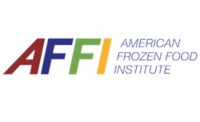Best Practices for Listeria Control
A measured approach to food safety.

Listeria monocytogenes (Lm) is ubiquitous in the environment and an ever-present threat in frozen food facilities, but food safety professionals who remain vigilant and understand where to focus food safety resources to control and prevent Lm in their facilities will ultimately triumph and keep food safe.
In 2017, the American Frozen Food Institute (AFFI) in Arlington, Virginia, embarked upon a strategic plan to advance food safety across the industry shortly after there was a Listeria monocytogenes (Lm) outbreak and recall related to frozen vegetables. We knew then that AFFI could be instrumental to our members and the broader food industry in developing the science and best practices to ensure that frozen foods and beverages are safe. Since then, AFFI has successfully launched industry education, completed research and developed regulatory policy solutions around the prevention and control of Lm across the food industry.
AFFI’s multi-faceted approach leverages industry education, research and policy to control and reduce the prevalence of Lm in frozen food facilities and foods. For example, in early 2019, AFFI unveiled its new Food Safety Zone, designed to serve as a one-stop food safety resource that enhances food safety programs of today’s food and beverage companies. Since its launch, AFFI’s Food Safety Zone has resulted in 30,480 page views with over 5,000 best practices resources downloaded. In addition to AFFI’s Food Safety Zone, AFFI recently released a Listeria-specific food safety training kit in partnership with Intertek Catalyst (Alchemy) which provides year-round training to help quality managers drive effective food safety practices with front-line employees.
These educational tools and resources are instrumental in empowering employees to make critical food safety decisions, but these tools must be implemented to be effective. To measure the effectiveness of AFFI’s best food safety practices, AFFI recently launched a program called the Lm Trend-Tracker in partnership with Merieux NutriSciences to analyze industry environmental monitoring data. The program allows companies to contribute their sampling data into a pool that is compared against others in their same category to help develop industry metrics. The year-end report developed from this industry data can then be used to develop new resources and further advance AFFI’s best food safety practices recommendations.
Industry education is only a part of AFFI’s food safety efforts. Consumers should feel confident in turning to frozen foods as convenient, safe and delicious options to feed their families. AFFI collaborates with member companies and consumer education institutions to promote the importance of safe food handling and cooking by consumers. Our consumer food safety education efforts, supported by the Frozen Food Foundation, funds initiatives like FMI’s National Family Meals Month and the Partnership for Food Safety Education to amplify our messaging that reminds consumers to follow the package cooking instructions when preparing frozen foods.
It takes many people to keep frozen foods safe. To advance food safety throughout the food chain, we must continue to measure and adjust our efforts to keep pace with this dynamic and changing food safety landscape.
I invite every domestic and international frozen food maker to take advantage of our Listeria Control Program resources found at www.AFFIFoodSafety.org. Together we can advance food safety!
Looking for a reprint of this article?
From high-res PDFs to custom plaques, order your copy today!






